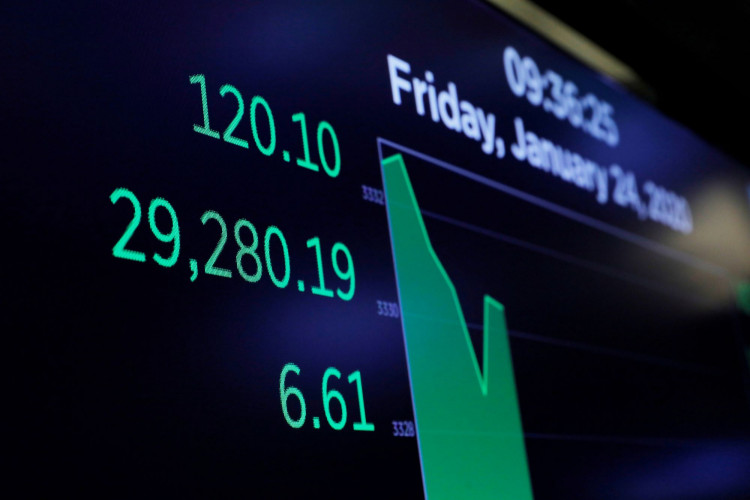The Dow Jones Industrial Average and Nasdaq stocks were down again this week. Other US stocks were lower when traders returned after the Presidents' Day holiday. The said decline was perceived to be the result of the public health concerns in China.
One of the biggest US stock losers was the S&P 500 index and the Dow Jones Industrial Average that were down by 0.29 percent and 0.56 percent, respectively. These stocks reduced by 9.87 points at 3,370.29 for the S&P 500 and 165.89 points for the Dow at 29,232.19. Nasdaq barely yielded a positive at 0.2 percent or 1.57 percent with 9,732.74.
While the US stocks declined, the report claimed that investors considered the warnings given by Apple Inc. and Walmart on the adverse global effects of China's public health problems. Last Monday, the iPhone maker revealed that there have been disruptive effects caused by the epidemic in China that global demand for its products is likewise suffering.
Apple Inc., one of the US's leading giants in the markets, claimed that it would undermine its revenue forecasts for the first quarter of 2020 due to manufacturing restrictions in China and their significant losses on sales in the region and globally.
The report then claimed that US companies are significantly affected by some production standstills in China because most of them relied on heavily on the country for its supply chains. China was also referred to as one of the largest manufacturing hubs in the world and that economic troubles in the country would significantly affect global economic growth.
In other news, CNBC reported that traders should consider strategies before the stock market opens this coming Tuesday.
The report claimed that the Dow's decrease marked a three-day losing streak. It was also revealed that Apple shares were also traded lower by two percent in the premarket. Furthermore, its chip stocks also declined this week.
Thus, the report then suggested that there would be a slower return to normal conditions in China. Furthermore, Walmart stocks also rose by one percent despite its failure to reach its expected quarterly results. The retail giant then revealed that there is a lesser demand for toys, apparel, and video games in the market.
On the other hand, credit-ratings agency Moody then reduced its 2020 GDP growth outlook for China by 5.2 percent from 5.8 percent. The agency also raised that the public health concerns in China might be severe, but would only generate a short-lived economic impact.





